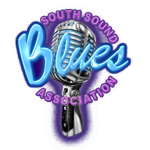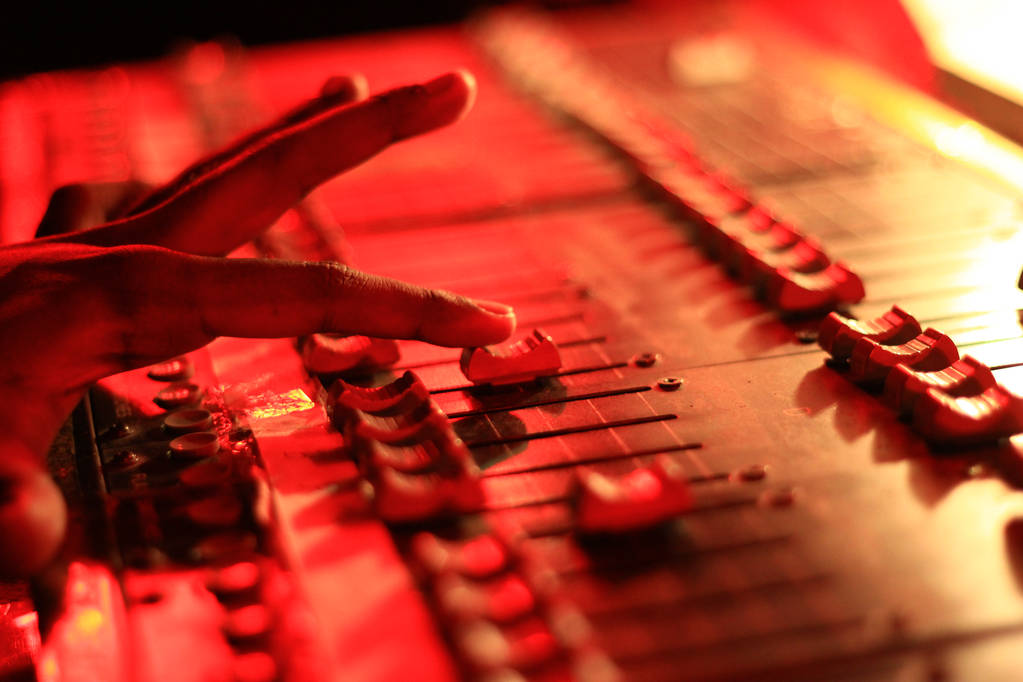The off-Stage Performer
Not actually unsung heroes at shows, the “sound man” at live music events usually gets a mention or sometimes even a big shout out. While you don’t often leave your home to go see them perform, you do enjoy the experience because of what these invisible performers provide from their booth, tent, or table.
This past year I have had the chance to work with a couple of these ‘off stage performers’, setting the sound at the Mill in Milton and at Purdy’s Public House in Sumner. Jonathan Quandt, at the mill, has a nice set up and he seamlessly sets the sound at each of our blues’ series shows while intermittently mixing drinks and serving tables as Manager. Justin Miller at Purdy’s does a great job, and the musicians often comment to me after the show that he is very good. It’s not that I wouldn’t notice myself but for them to thank him during the show, and later to me individually after, tells me a lot.
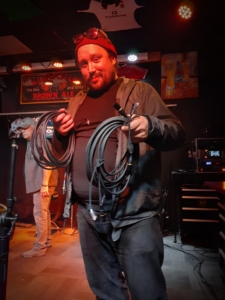 Justin Miller
Justin Miller
Justin is meticulous. He shows up early and goes right to work. He does his homework and usually knows what to expect regarding how the band will set up. When the musicians start showing up, he is friendly, helpful and works with them individually, as needed, then together setting the sound through mics on the drums, amps, and vocals. He keeps an eye on the clock and makes sure they are ready to go on time.
Many of the Sound people I have had the opportunity to talk with are musicians themselves. Justin Miller plays the bass, David Sobie plays Sax, and James ‘Coach’ Hurley, plays guitar. Other names, there are many, are Mike Cloud, Pete Sams, Donavan Nolan, Sean Aragon, Jesse Edwards. Chris Coons was a fixture for years in the South Sound and respected for his work in the community before he passed in 2024. Jim Butler runs the sound for the Gig Harbor Rockin’ Rhythm & Blues Festival. As you can imagine, when they are out listening to amplified vocals or music, their attention is first directed to evaluating the sound. If you get a chance, let the sound folks know you appreciate their work behind the spotlight.
James Hurley lives in Centralia and is often asked to do sound in the area. He does the sound at the Gorge Blues and Brews Festival and has worked at the Waterfront Blues Festival in Portland for years. Chris Coons’ has done the Dock Street festivals, Jazzbones, the Sunday Blues shows at the Spar and many other events in the South Sound area. I saw him one year doing the sound at the Orting Rock Fest. He was a beloved figure in the South Sound music scene. He will be missed by many of us.
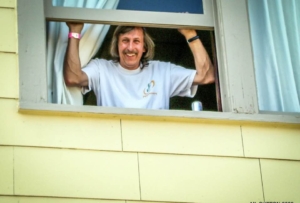 Chris Coons
Chris Coons
More and more these days, Justin is in high demand. Besides his regular gigs at Purdy’s, he is often hired to do festivals and other events. These folks who work the sound all know, or know of, each other and often share stories and ideas.
True Tone Audio, out of Bellingham, provides sound & lighting for national touring acts to private events in the northwest. They do live sound, recording, installation, backline, video, training, sales and are willing to share trade secrets and help in any way they can, without reservations. The same goes for the folks at Sams Studios in Tacoma, owned and operated by Pete Sams, also a bass player.
I have had the challenge of setting up a stage myself, having to work on a desirable sound mix. Most musicians have some form of a PA system but would rather not have to tote it to a gig. Gradually you learn, especially as you get older, it is far more desirable to play a set stage with a sound manager to take control.
Once set up, when things seem to be going smoothly, they keep an eye on the stage to make sure the musicians are comfortable with what they are hearing, usually through their monitors. Other problems can crop up with movement on stage, equipment malfunctions or a bad cord acting up. They must be ready to act, or the show may come to a screeching halt! We all usually remember well when this happens, and we’d rather not.
Sound Engineers/technicians have a big responsibility assembling, operating, and maintaining the technical equipment used to amplify, enhance, and mix the sound getting the right quality and balance with the proper effects. In most cases working the stage lights is also involved.
Technically is it sound tech or a sound engineer? There is a difference between the two. I’m told the Tech is someone that mainly sets up/tears down the PA system/stage, makes all the connections, makes sure the system is working properly and typically assists the artist. The Engineer typically performs the sound check and controls the mix for the performance. David says to call him “sound guy”, or David.
Like any other industry, technology has changed significantly from analog to digital signal, big to small, and from ala carte’ to all-in-one devices, equipment, and processing. A mix of all kinds is often used.
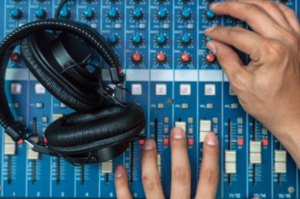
Most sound people get started the same way, setting up their own band, in the beginning, then maybe a friend’s wedding reception, volunteering at events, helping to load and unload, then getting paid.
David Sobie helps me understand the possible pay structure. “The sound industry has so many factors to consider when providing a great product. Putting a value on it differs from event to event but on the average Techs start around 25-30 an hour and Engineers can start around the 50 mark and goes up from there. This does not include equipment, travel, and environment etc. Most compensation is figured on a package deal”.
Besides performance venues, a sound engineer could also work at recording studios or film and stage production locations. In this case they would use technical equipment to record, synchronize, mix, edit, or reproduce music, voices, or sound effects for theater, video, film, television, podcasts, sporting events, or other productions.
At live events the Sound personnel can work a minimum of 4 hours to sometimes 12 hours or more if it is a festival setting. There are some freelance techs that tour, spending time on the road, sleeping somewhere different at each stop, working with different people along the way. “The biggest perk is getting to meet so many wonderful people, at great venues with the opportunity to work with some of the finest artists in the area”. DS
When I asked for examples of negative experiences, David told me, “90 percent of all bad experiences are because someone did not do their homework and was not prepared! Yes, if you haven’t had a bad experience, you haven’t done enough shows. Mostly working with non-professional musicians can be challenging. Bad or little communications with promoters/ producers will always turn into a frustrating situation. And mother nature can be a bitch”.
He owns his own sound company, Sobie Sounds Northwest LLC (FB Website), and manages the sound at the Rainier Music Festival each year, the Rhubarb Festival, concerts in city parks, and assists at other events like the Sunbanks festivals. You will also see him with his Sax at an occasional jam or when asked to join in at other gigs.
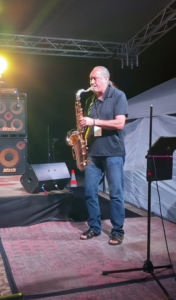 David Sobie
David Sobie
The Dullum’s, owners of Kimball Coffeehouse in Gig Harbor, have an incredible sound system set for a room its size. The sound is spectacular, and they do a great job each Friday taking care of the musicians who get the opportunity to play to, what is often, a full room. Mike Dullum may soon expand the room size, and he has it covered, sound wise.
Justin has told me that he really enjoys his work. He likes being around the music and fits in with the musicians. He listens to their stories at the end of the night while everyone is packing away their gear, properly putting everything away, already preparing for the next performance. Now it’s Miller time!
Written by A. J. Pasilis (big thank you to David Sobie for his input)
